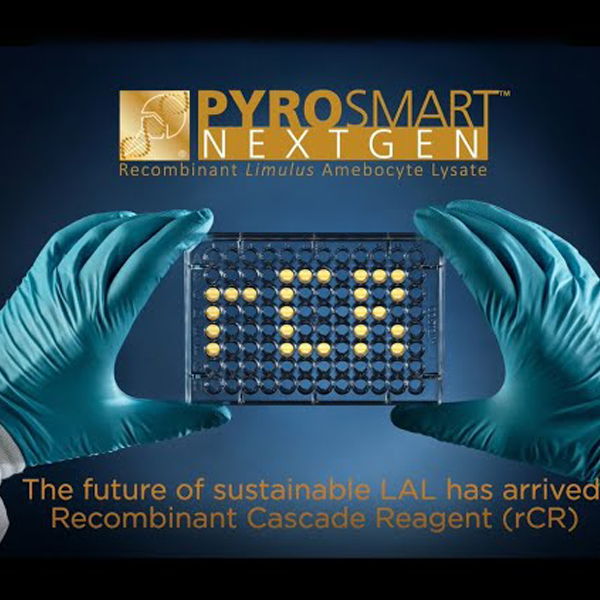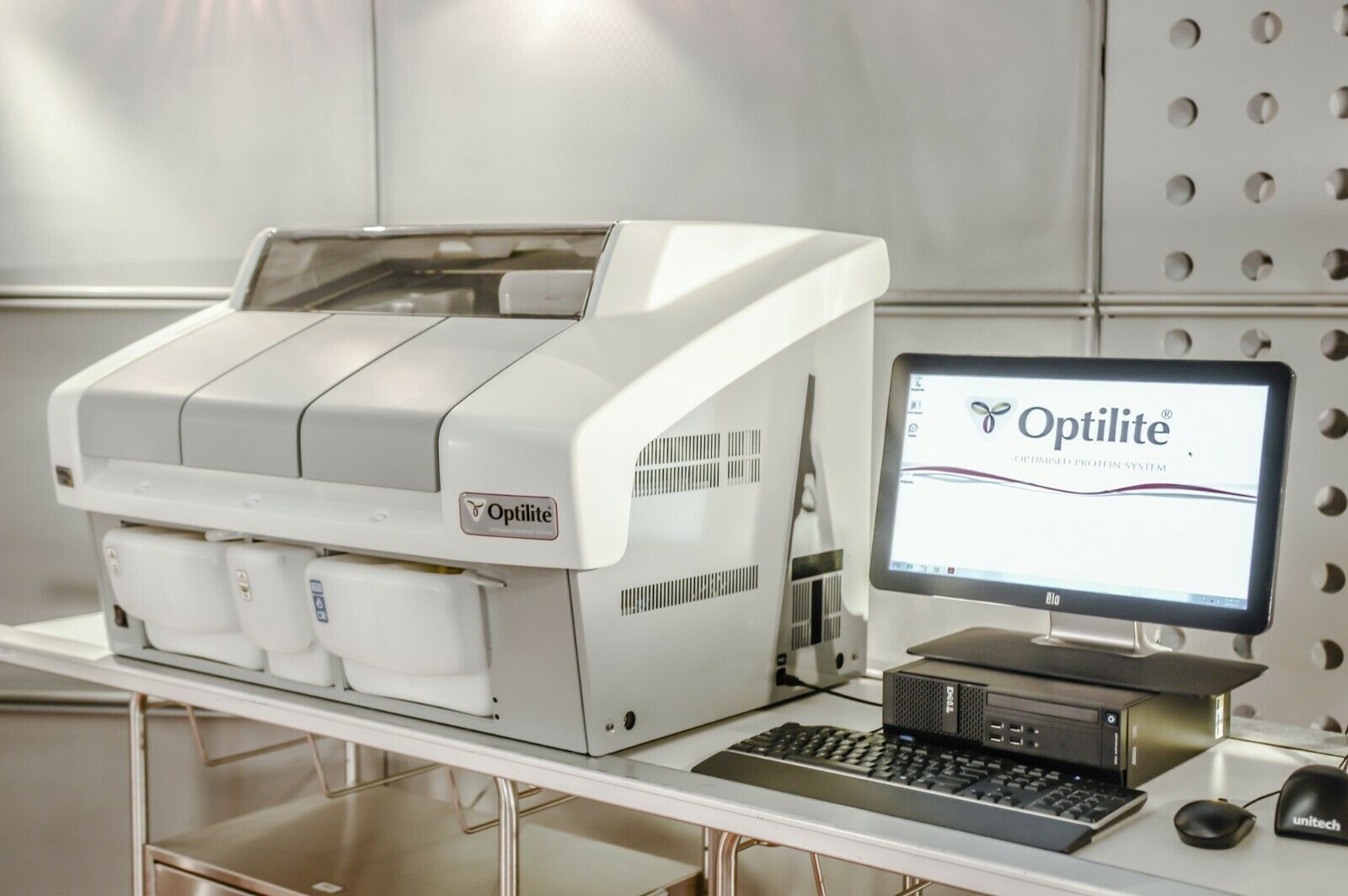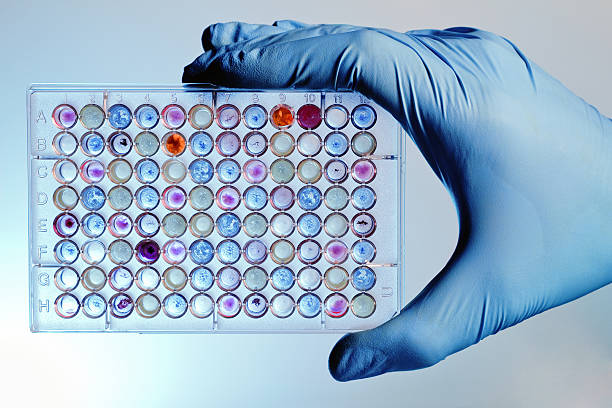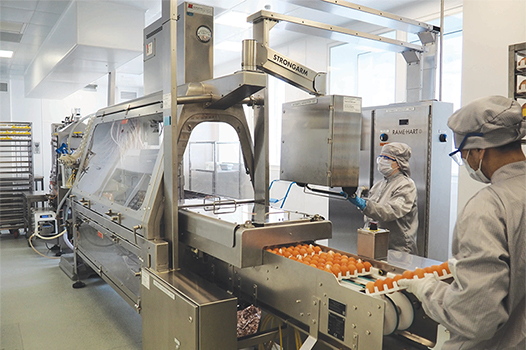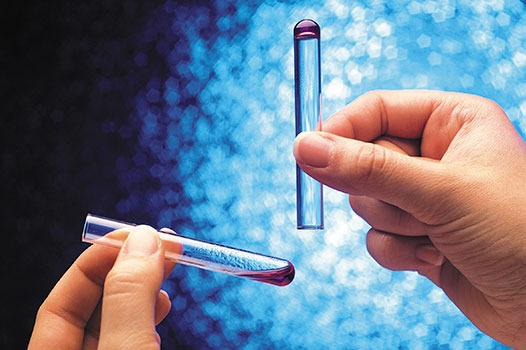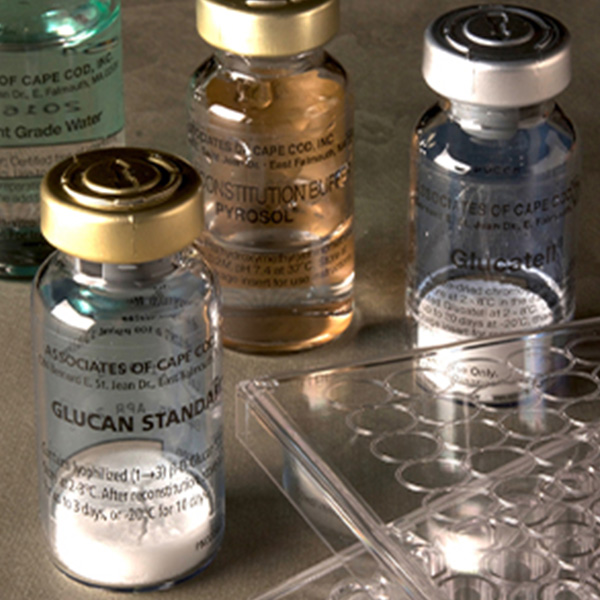
Pharmaceuticals & Research Reagents and Kits
Glucatell® Kit
The Glucatell® assay kit is specific for (1→3)-β-D-glucan. The assay is based upon a modification of the Limulus Amebocyte Lysate (LAL) pathway. The Glucatell® reagent is processed to eliminate Factor C, and is therefore specific for (1→3)-β-D-glucan. The reagent does not react to other polysaccharides, including beta-glucans with different glycosidic linkages.
Sample to Lysate Ratio
Kinetic Assay: 25 µL of sample or standard is mixed with 100 µL of reagent in a microplate.
End-point Assay: 50 µL of sample is mixed with 50 µL of reagent in a microplate.
Test Performance
Kinetic Assay: The Glucatell®/sample mixture is incubated at 37°C ± 1°C in a microplate reader equipped with a 405 nm filter and analyzed over time by a suitable software program.
End-point Assay: The Glucatell®/sample mixture is placed in a microplate heating block at 37°C ± 1°C for the recommended time period. 50 µL each of the three diazo reagents are added to the mixture to stop the reaction, which is then read at 540–550 nm. Concentration of the samples is analyzed by a suitable software program.
Product Stability
Store all reagents at 2–8°C in the dark. Reconstituted Glucatell® reagent should be stored at 2–8°C and used within 2 hours. Alternatively, reconstituted Glucatell® reagent can be frozen at -20°C for 20 days, thawed once and used. The diazo-reagents should be used the day they are prepared.
Product Packaging
The Glucatell® kit is available as either an end-point or kinetic chromogenic assay for use in microplates. The kit contains the Glucatell® reagent, a (1→3)-β-D-glucan standard, buffer, diazo reagents (end-point kit only), glucan-free water, and glucan-free microplates.
Product Applications
- Analyzing final products for (1→3)-β-D-glucan
- Investigating LAL Out of Specification results
- Qualifying raw materials
- Monitoring cellulosic filter extractables
- Monitoring fungal fermentation processes
- Analyzing fermentation and cell culture media
- Monitoring airborne glucan burden
More products
Pharmaceuticals & Research
Bacterial Endotoxin Assays – LAL Reagents
Limulus Amebocyte Lysate (LAL)...
Pharmaceuticals & Research
PyroSmart NextGen rCR
PyroSmart NextGen® recombinant Cascade Reagent (rCR)...
Pharmaceuticals & Research
Agilent – BioTek Epoch 2 Microplate Spectrophotometer
The BioTek Epoch 2 microplate...
Pharmaceuticals & Research
Gen5™ Secure Software
Designed by engineers focused on microplate instrument technology...
our foreign associates
Exclusive foreign partnerships
partner to success
Expand Your Reach In India With KHC. You Will Enjoy Your Growth
Journey in the Fascinating Indian Market
it can drive innovation at top-notch speed.Being frugal is not at all bad.
Wahi Anuj
Vice-Chairman & Managing Director
Being frugal is not at all bad, it can drive innovation at top-notch speed.
Anuj Wahi
Vice-Chairman & Managing Director

